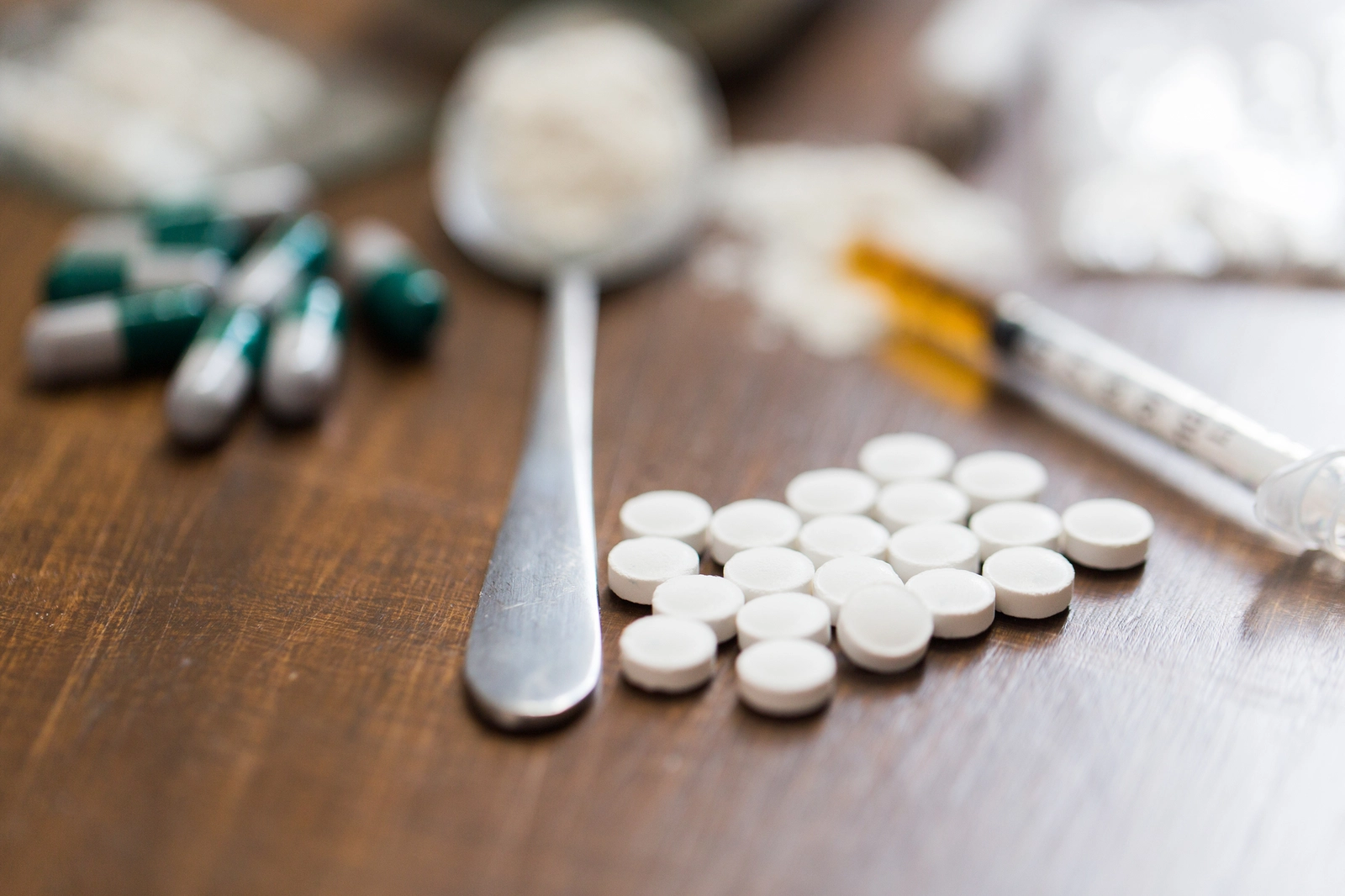What Is Freebasing? Understand The Dangerous Practice

What you will learn
- Freebasing is a dangerous chemical process that converts drugs into more potent forms that reach the brain within seconds, causing intense but brief effects and carrying severe risks of overdose and death.
- Common substances used in freebasing include cocaine (converted to crack cocaine), amphetamines, and heroin, all of which become more addictive and dangerous in their freebase form.
- The practice creates immediate physical dangers, including heart problems and respiratory issues, while the rapid delivery and intense effects lead to quick addiction development and severe withdrawal symptoms.
Freebasing is an extremely hazardous method of substance use, causing severe damage to physical and mental health. This dangerous practice can lead to immediate cardiac issues, respiratory failure, and a heightened risk of fatal overdose. The intense effects and rapid delivery system make it extremely addictive, often resulting in compulsive use patterns within days or even hours of initial exposure. The practice also carries serious risks of burns, lung damage, and toxic chemical exposure.
What is Freebasing?
Freebasing is a dangerous chemical process that converts certain substances into a more potent and rapidly-absorbed form. [1] This practice is exceptionally risky due to the volatile chemical reactions and intense effects on the body. The term originated in the 1970s and remains associated with severe medical emergencies and overdose deaths.
The altered chemical structure allows the substance to reach the brain within seconds, creating an intense but brief effect. This rapid onset and short duration often lead to repeated use, dramatically increasing the risks of overdose, heart problems, and organ damage. Medical studies show that freebasing poses significantly higher health risks compared to other forms of substance use, with heart attacks and respiratory failure being common emergency complications.[2]
What Substances Are Typically Used in Freebasing?
Freebasing has become increasingly concerning due to its severe health risks and high potential for fatal outcomes with several substances.[3]
- Cocaine with chemical alteration: The powder form undergoes a process to remove hydrochloride, creating what many know as crack cocaine. This modified version delivers a more concentrated and dangerous form of the drug, leading to heightened addiction potential and severe cardiac risks.
- Amphetamines in freebase form: These stimulant drugs can be chemically modified through freebasing, resulting in more potent versions that pose immediate health risks. The altered form creates intense, rapid effects that can quickly lead to addiction and medical emergencies.
- Heroin through chemical modification: The process of altering heroin creates an extremely dangerous modified form. This version carries a significantly higher risk of fatal overdose and causes more severe respiratory depression than the original form.
Why is Freebasing So Dangerous?

Freebasing transforms substances into their most dangerous and addictive forms through chemical alteration. The process creates severe risks that extend far beyond typical substance use.[4]
- Immediate physical dangers: The conversion of cocaine hydrochloride to base form creates intense effects on heart rate and respiratory function. The smokable nature of freebase cocaine delivers an immediate rush of dopamine, leading to a powerful feeling of euphoria that creates rapid addiction.
- Chemical and toxic exposure: The process often involves additives like baking soda and creates impurities that cause severe damage to the lungs and respiratory system. The vapors produced contain concentrated toxins that can cause immediate health issues.
- Risk of fatal outcomes: The combination of freebase cocaine with other substances, particularly opioids or fentanyl, dramatically increases the risk of overdose. The intense high can mask dangerous symptoms until a medical emergency develops.
- Rapid addiction development: The short-term effects are extremely intense but brief, leading to immediate cravings and compulsive use. This form of the drug creates a higher risk of severe substance use disorder than powder cocaine or snorting.
- Severe withdrawal challenges: The intense euphoric effects lead to powerful withdrawal symptoms, making detox particularly difficult. These symptoms affect both physical health and mental health, often requiring specialized treatment programs.
- Long-term health consequences: Regular exposure to freebase cocaine through a glass pipe causes lasting damage to the respiratory system. The drug abuse pattern typically leads to serious health issues, including potential heart attack and permanent cardiovascular damage.
What Are the Effects of Freebasing Cocaine?
The effects of freebasing cocaine occur within seconds and create an intense but brief euphoric rush that significantly impacts both body and brain.[5] When cocaine enters the bloodstream through smoking, it causes an immediate surge in heart rate, blood pressure, and body temperature. The brain experiences a flood of dopamine, creating powerful feelings of pleasure and alertness that typically last five to ten minutes.
This rapid delivery and intense effect create a dangerous cycle. As the brief euphoria fades, it leads to immediate and severe cravings, often causing repeated use over hours or days. The pattern typically results in increasing paranoia, anxiety, and agitation. Physical symptoms become more severe with continued use, including chest pain, difficulty breathing, and dangerous spikes in blood pressure. The risk of heart attack, stroke, and fatal overdose rises dramatically with each episode of use. The presence of toxic chemicals and impurities in freebase cocaine also causes severe damage to the lungs and respiratory system.
Does Freebasing Make it Easier to Overdose?
Freebasing dramatically increases the risk of overdose due to its intense and rapid delivery system into the bloodstream.[6] When someone smokes freebase cocaine, the drug reaches the brain within seconds, making it difficult to control the amount absorbed. This rapid absorption often leads people to take in far more of the substance than intended, especially as judgment becomes impaired with repeated use.
The combination of rapid delivery and concentrated potency creates a perfect storm for overdose. The body experiences intense stress on the cardiovascular system, with dramatic spikes in heart rate and blood pressure occurring almost instantly. Freebasing also tends to lead to extended periods of repeated use as people attempt to maintain the intense but brief effects. During these episodes, the cumulative strain on the heart, combined with sleep deprivation and dehydration, significantly raises the risk of sudden cardiac events or fatal overdose. The presence of other substances multiplies these dangers.
How Can I Get Help?
Reaching out to a trusted loved one can be a vital first step toward recovery if you’re struggling with substance abuse. Having an open conversation with family members or close friends provides emotional support and helps create a network of people who can assist with finding professional help and maintaining recovery. Many people find that sharing their struggles with those closest to them relieves and helps overcome feelings of isolation.
Your doctor or healthcare provider offers another confidential pathway to treatment. Medical professionals can evaluate your specific needs, manage withdrawal symptoms safely, and connect you with specialized addiction treatment providers in your area. Many treatment centers offer comprehensive programs that include medical care, counseling, and ongoing support. These programs can be designed to your unique situation, whether you need intensive inpatient treatment or are looking for outpatient care that allows you to maintain work and family commitments while getting help.
Ready to get help for you or a loved one? Contact us
To ensure accuracy and quality, every contributor to the Alpas Wellness resource library undergoes a thorough evaluation of their experience, credentials, and achievements prior to publication.
Frequently Asked Questions About Freebasing
Why do the effects of freebasing feel more intense?
The rapid delivery system and concentrated form allow the substance to reach the brain almost immediately, creating a more powerful but dangerous effect than other methods of use. When someone smokes a freebase substance, it travels directly to the brain through the lungs and bloodstream within seconds. This creates an overwhelming flood of neurotransmitters, particularly dopamine, leading to intense euphoria. The speed and concentration of this delivery make the effects feel dramatically more powerful than other methods, though these effects are typically much shorter in duration.
What makes freebasing more dangerous than other forms of substance use?
The combination of concentrated potency, rapid delivery, and toxic chemicals creates severe risks of overdose, heart problems, and respiratory failure. The intense speed of delivery makes it nearly impossible to control dosage, while the concentrated form means even small amounts can trigger severe reactions.
The chemical conversion process also introduces additional toxic compounds that can cause immediate damage to the lungs, heart, and brain. The brief but intense effects often lead to repeated use within short periods, dramatically increasing strain on the body and risk of fatal complications.
What immediate medical complications can occur?
Immediate risks include heart attack, stroke, respiratory failure, severe anxiety, paranoia, and hyperthermia. The sudden surge of the substance can cause dangerous spikes in blood pressure and heart rate, potentially triggering cardiac arrest even in young, healthy individuals. The intense vasoconstriction can lead to strokes, while the toxic chemicals can cause immediate lung damage. Many people also experience severe psychological reactions, including panic attacks and acute psychosis. Body temperature can rise to dangerous levels, particularly during binges, leading to organ damage and potential death.
What treatment options work best for freebasing addiction?
Effective treatment typically starts with medically supervised detox to manage severe withdrawal symptoms safely. This initial phase often requires careful monitoring of heart function and mental health, as the withdrawal can be particularly intense. Following detox, comprehensive treatment programs combine therapy, group support, and medical care to address both the physical dependency and underlying factors contributing to substance use.
Many people benefit from residential treatment initially, followed by intensive outpatient care and ongoing support groups. Treatment plans often need to address co-occurring mental health conditions and provide specific strategies for managing the intense cravings associated with freebase substances.
[1]Santos-Longhurst, A. (2020, February 21). Freebasing: The same as smoking crack? and other faqs. Healthline. https://www.healthline.com/health/freebasing on December 13, 2024
[2] Meisels, I. S., & Loke, J. (1993). The pulmonary effects of free-base cocaine: a review. Cleveland Clinic Journal of Medicine, 60(4), 325–329. https://www.ccjm.org/content/ccjom/60/4/325.full.pdf on December 13, 2024
[3] Juan Pablo Cordova, Balan, S., Romero, J., Aleksandr Korniyenko, Alviar, C. L., Paniz-Mondolfi, A., & Jean, R. (2014). “Chasing the Dragon.” American Journal of Therapeutics, 21(1), 52–55. https://pubmed.ncbi.nlm.nih.gov/21519216/ on December 13, 2024
[4] Tashkin, D. P., Gorelick, D., Khalsa, M. E., Simmons, M., & Chang, P. (1992). Respiratory effects of cocaine freebasing among habitual cocaine users. Journal of Addictive Diseases, 11(4), 59–70. https://pubmed.ncbi.nlm.nih.gov/1486094/ on December 13, 2024
[5] Perez-Reyes, M., Di Guiseppi, S., Ondrusek, G., Jeffcoat, A. R., & Cook, C. E. (1982). Free-base cocaine smoking. Clinical Pharmacology and Therapeutics, 32(4), 459–465. https://pubmed.ncbi.nlm.nih.gov/7116761/ on December 13, 2024
[6] Jandreski, M. A., Bermes, E. W., Leischner, R., & Kahn, S. E. (1989). Rhabdomyolysis in a case of free-base cocaine (“crack”) overdose. Clinical Chemistry, 35(7), 1547–1549. https://pubmed.ncbi.nlm.nih.gov/2758612/ on December 13, 2024